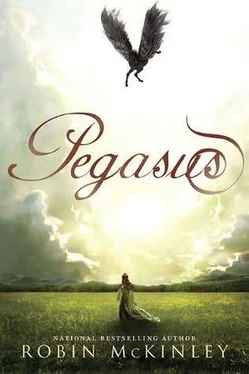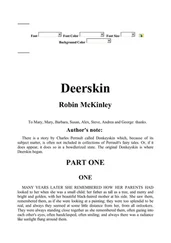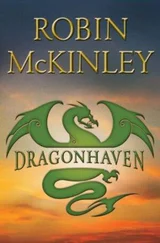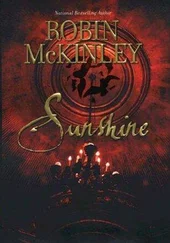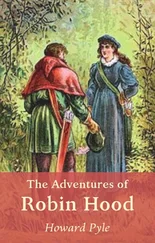With one of her little cousins she’d have needed a better toy than a bowl. But wasn’t she herself the new toy? Very slowly she put out one of her hands, very slowly uncurled one finger and very slowly touched the bottom of the bowl with her pointing finger.
The baby was a small but definite presence a little to her right; she could see out of the corner of her eye the slender shadows of its legs move as it took another step toward her. And now she could hear as it breathed in and out sharply, as if surprised at the smell of human. Sylvi hoped it wasn’t an unpleasant smell. She continued to stare at the bowl, and at her own finger.
Around her silence was falling: the silent voices were falling silent; the slight rustling of pegasi going about their business stilled.
The baby gave a prance. No, Sylvi thought, I’m not going to look at you; you have to come to me.
And it pranced up to her, and stopped, and put its face down, and touched her hand with its nose. Her nose: this fine little nose had to belong to a girl. Sylvi looked up then and smiled—smiled involuntarily, showing her teeth, the way humans do; humans bare their teeth when they’re pleased. But the baby didn’t skitter away, but wrinkled her muzzle in a pegasus smile as if she understood. Hroooo drifted through Sylvi’s mind, as soft and faint as the tap of baby hooves.
Hrooo to you too, Sylvi said, trying to say it quietly, how do you silent-speak quietly? she thought in despair, and the baby positively giggled: Hreee hreee hreee hreee, kicked up her heels, spread her infinitesimal wings and galloped around Sylvi three times before dashing off to stand behind her mother again. She poked her head out long enough to give one last cheeky “Hreee.”
Sylvi laughed, and stood up, and realised she felt better—lighter, freer—than she had since her father left—certainly since the night before, when she’d crawled into her nest of feathers feeling that she might never be able to stand up straight again from the weight she’d felt laid across her shoulders that evening.
That, said Ebon, is Hilililin, and she’s a brat. It wouldbe Hili who had a go at you first.
She’s a very cute brat, said Sylvi.
The walkers set off almost at once, Ebon and Sylvi, Niahi, Feeaha, Aary, Dorheemiha, and Flanoohr; and the queen, Aliaalia.
There was a minor hubbub behind them—followed by the sound of tiny galloping hooves and an exasperated out-loud call. Even shouting, thought Sylvi, they have that musical resonance.
Why did I know this was going to happen? said Ebon. Hili bolted to Sylvi, hid behind her and poked her nose out to look at her mother, who was trotting toward them with her wings half roused. Sylvi could feel Hili panting as she leaned against Sylvi’s legs. “ There’s not much of me to hide behind, is there? ” she said out loud.
Lady, said Hili’s mum uncertainly.
Lady, Sylvi replied.“ Fwif. ”
Viawahah, said Ebon. Hilililin’s mum.
I— began Viawahah, and then stopped, obviously at a loss, dropping her wings and her head in a gesture, Sylvi thought, like spreading your hands and shrugging. It’s hard for them too, she thought. Of course it is.
Hilililin is a darling, she said.
“Hrooo, ” came a little voice behind her knees.
Viawahah’s head came up and her wings flattened and then folded neatly across her back: her upper lip just wrinkled and then smoothed again. She is a broliglag.
Monster, translated Ebon. It’s a small monster that gets into things. Like rats.
I am nota rat! put in Hili.
No, said Ebon. Your tail is too hairy.
I am not a broliglag!
Yes, you are, said Viawahah, and you’re too little to walk to the Golinghagah Hill. Come along.
I am nottoo little!
And furthermore, you weren’t invited, said Ebon.
At that, Hilililin drooped. She touched her nose to Sylvi’s hand like a good-bye, and went and stood by her mother.
The next time I come, said Sylvi, you’ll be bigger, and I’ll invite you.
Promise you won’t jump off anything and say you’re flying, and you can come now, said Ebon.
Hili’s head snapped around, and her mother’s wings began to rouse again. But—
I promise!
She can ride, said Ebon. He gave Sylvi a look through his eyelashes and added, I have a nice, broad, flat back, good for carrying passengers. I won’t let her fall off. He knelt, and then lay down, legs curled under him, and drew his nearer wing back. Climb up, small one, and mind where you put your hard little feet. Hili dithered for a moment, and then rushed forward and threw herself up Ebon’s side.
“ Ggh ,” said Ebon.
I’ll steady her while you get up, shall I? said Sylvi. She had already stepped forward and begun to put her hands out . . . and stopped. The pegasi had fallen silent again—that too-silent, too-still way they had. Sylvi curled her big strong human hands back against her body, trying to tuck them between her elbows and her rib cage where no one could see them, where she couldn’t embarrass herself or the pegasi with them, with what she could do and they could not. Surely the pegasi carried their babies on their backs sometimes? How did they do it?
She hadn’t meant to speak to be heard, but her inexperience betrayed her.
We have draia for many purposes, said the queen softly. Yes, of course we carry our babies. In the old days, before the Alliance, we had always to be ready to fly for our lives; and our children do not fly till they are several years old, and cannot fly far for some years after that. But we rarely carry them on our backs. There must be at least two of us to hold the baby while the bearer stands up; and our shamans have found no supporting word for this. A baby as big as Hili is now would be very difficult—indeed dangerous to those holding or lifting her. Our hands, once broken, do not heal readily.
I’m . . . sorry, said Sylvi, feeling wretched.
Yah, said Ebon from the ground. Since we have her, let’s use her. And she just said she’d come back, so we can use her some more. Come on, Syl, the sunset is soon. Grab the broliglag and let’s get on with it.
So Sylvi unfolded her hands again, feeling them like great ugly shovels suspended—sternly, unforgivingly—out in front of her. Hili quivered ever so slightly when Sylvi touched her—but at once put her nose to one of Sylvi’s hands again, this time as if in apology. She seemed to Sylvi to weigh so little that she might have floated off Ebon’s back if she moved incautiously.
Ebon stood up and Hili gave a little squeal of what was obviously pleasure. Watch yourself, you, said Ebon. I said I wouldn’t let you fall off—I didn’t say I wouldn’t make you wantoff.
The next day they flew again, and when they landed they had arrived at the entrance to the Caves.
Tomorrow morning they would go inside. Tomorrow morning she, Sylviianel, fourth child of the human King Corone IV, would enter the pegasi’s mythical Caves, where no human had ever before set foot, the Caves which were the centre of their lives and their civilisation, and of ssshasssha, the pegasi history and recollection, which no human understood.
Ebon had told her which of the mountain peaks roofed the main entrance to the Caves: there was a double-crowned mountain and then a falling-away series of smaller ones that made a zigzag line against the sky much sharper than those surrounding it. They were their own little range, visibly of some other, less erodible material than the rest. Ebon had first pointed them out to her the day she had arrived with her father, but she hadn’t taken it in; or rather, she had allowed herself to be distracted, because there were so many things to see, to make sense of, to try and understand.
Читать дальше
